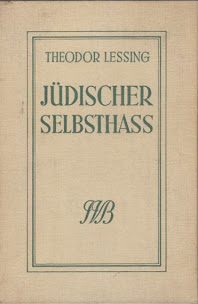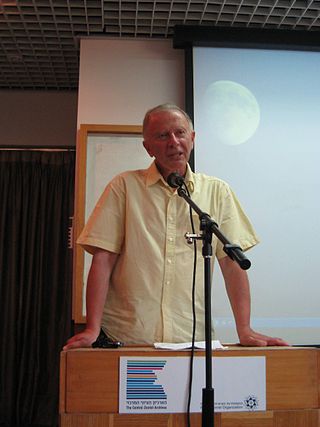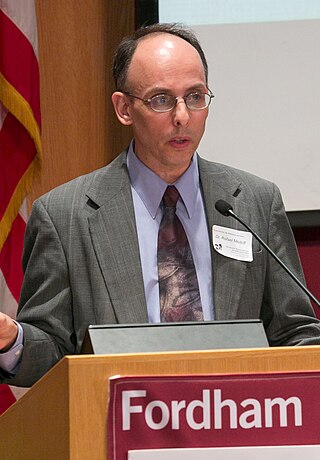haGalil is an online magazine published in German relating to the issues of Judaism, German Jewry and Israel. It is considered as the most widespread magazine of its kind in German, with over 380,000 monthly visitors (August 2009).
haGalil is an online magazine published in German relating to the issues of Judaism, German Jewry and Israel. It is considered as the most widespread magazine of its kind in German, with over 380,000 monthly visitors (August 2009).
The magazine was established by David Gall in 1995, and is since then published by him and Eva Ehrlich, both of whom are German-Jews residents of Munich. The magazine operates two offices in Munich and Tel Aviv. According to an interview with the magazine editor conducted in 2001, the main goals of the magazine are to fight anti-Semitism and neo-Nazism on the web, and to supply data regarding Judaism, Jews and Israel. The magazine's motto is publishing a large number of authentic articles in these topics, in order to place hatred and neo-Nazi articles on a lower position in the internet search engines.
HaGalil online presents articles and short communications on various issues related to Jewish life, Jewish history, culture and religion. Additional central topics are Israel and the Israeli-Arab conflict, as well as modern anti-Semitism in German speaking countries. Judaism is presented in a broad sense, including an equal representation for all Jewish religious movements, and it provides a platform for all political opinions in Israel, from classical Zionism to other oppositional groups. Some articles are borrowed from other media and translated from English and Hebrew to German.
In February 2006 the magazine was attacked by hackers probably as a response to the republication of Jyllands-Posten Muhammad cartoons. The magazine editor stated that he does not oppose Islam in any way and personally finds these cartoons tasteless; however, he decided to publish them as a response to the violent reactions of Muslims across Europe after the cartoons' original publication. The magazine is financially supported by donations and advertisements.
Antisemitism or Jew-hatred is hostility to, prejudice towards, or discrimination against, Jews. This sentiment is a form of racism, and a person who harbours it is called an antisemite. Primarily, antisemitic tendencies may be motivated by negative sentiment towards Jews as a people or by negative sentiment towards Jews with regard to Judaism. In the former case, usually presented as racial antisemitism, a person's hostility is driven by the belief that Jews constitute a distinct race with inherent traits or characteristics that are repulsive or inferior to the preferred traits or characteristics within that person's society. In the latter case, known as religious antisemitism, a person's hostility is driven by their religion's perception of Jews and Judaism, typically encompassing doctrines of supersession that expect or demand Jews to turn away from Judaism and submit to the religion presenting itself as Judaism's successor faith—this is a common theme within the other Abrahamic religions. The development of racial and religious antisemitism has historically been encouraged by the concept of anti-Judaism, which is distinct from antisemitism itself.
Some Christian Churches, Christian groups, and ordinary Christians express antisemitism toward the Jewish people and the associated religion of Judaism. These can be thought of as examples of anti-Semitism expressed by Christians or by Christian communities. However, the term "Christian Anti-Semitism" has also been used to refer to anti-Jewish sentiments that arise out of Christian doctrinal or theological stances. The term "Christian Anti-Semitism" is also used to suggest that to some degree, contempt for Jews and for Judaism inhere to Christianity as a religion, itself, and that centralized institutions of Christian power, as well as governments with strong Christian influence have generated societal structures that survive to this day which perpetuate anti-Semitism. This usage appears particularly in discussions of Christian structures of power within society, which are referred to as Christian Hegemony or Christian Privilege; these are part of larger discussions of Structural inequality and power dynamics.

Kevin B. MacDonald is an American antisemitic conspiracy theorist, white supremacist, and retired professor of evolutionary psychology at California State University, Long Beach (CSULB).

The Christian Century is a Christian magazine based in Chicago, Illinois. Considered the flagship magazine of US mainline Protestantism, the monthly reports on religious news; comments on theological, moral, and cultural issues; and reviews books, movies, and music.
New antisemitism is the concept that a new form of antisemitism developed in the late 20th and early 21st centuries, typically manifesting itself as anti-Zionism. The concept is included in some definitions of antisemitism, such as the working definition of antisemitism and the 3D test of antisemitism. The concept dates to the early 1970s.

Moment is an independent magazine which focuses on the life of the American Jewish community. It is not tied to any particular Jewish movement or ideology. The publication features investigative stories and cultural criticism, highlighting the thoughts and opinions of diverse scholars, writers, artists and policymakers. Moment was founded in 1975, by Nobel Prize laureate Elie Wiesel and Jewish activist Leonard Fein, who served as the magazine's first editor from 1975 to 1987. In its premier issue, Fein wrote that the magazine would include diverse opinions "of no single ideological position, save of course, for a commitment to Jewish life." Hershel Shanks served as the editor from 1987 to 2004. In 2004, Nadine Epstein took over as editor and executive publisher of Moment.

The Culture of Critique series is a trilogy of books by Kevin B. MacDonald that promote antisemitic conspiracy theories. MacDonald, a white supremacist and retired professor of evolutionary psychology, claims that evolutionary psychology provides the motivations behind Jewish group behavior and culture. Through the series, MacDonald asserts that Jews as a group have biologically evolved to be highly ethnocentric and hostile to the interests of white people. He asserts Jewish behavior and culture are central causes of antisemitism, and promotes conspiracy theories about alleged Jewish control and influence in government policy and political movements.
Radio Islam was a Swedish neo-Nazi and Islamic local radio channel, now a website. The EU's racism monitoring organization has called it "one of the most radical right-wing antisemitic homepages on the net".

The terms "self-hating Jew", "self-loathing Jew", and "auto-antisemite" are pejorative terms used to describe Jewish people whose viewpoints, especially favoring Jewish assimilation, Jewish secularism, limousine liberalism, or anti-Judaism are perceived as reflecting self-hatred.
The Jewish question was a wide-ranging debate in 19th- and 20th-century Europe that pertained to the appropriate status and treatment of Jews. The debate, which was similar to other "national questions", dealt with the civil, legal, national, and political status of Jews as a minority within society, particularly in Europe during the 18th, 19th, and 20th centuries.

Robert Solomon Wistrich was a scholar of antisemitism, considered one of the world's foremost authorities on antisemitism.
Antisemitic tropes, also known as antisemitic canards or antisemitic libels, are "sensational reports, misrepresentations or fabrications" about Jews as an ethnicity or Judaism as a religion.

Rafael Medoff (born c. 1959) is an American professor of Jewish history and the founding director of The David Wyman Institute for Holocaust Studies, which is based in Washington, D.C. and focuses on issues related to America's response to the Holocaust.
Antisemitism in Norway refers to antisemitic incidents and attitudes encountered by Jews, either individually or collectively, in Norway. The mainstream Norwegian political environment has strongly adopted a platform that rejects antisemitism. However, individuals may privately hold antisemitic views. Currently, there are about 1,400 Jews in Norway, in a population of 5.3 million.
Martin Luther (1483–1546) was a German professor of theology, priest and seminal leader of the Reformation. His positions on Judaism continue to be controversial. These changed dramatically from his early career, where he showed concern for the plight of European Jews, to his later years, when embittered by his failure to convert them to Christianity, he became outspokenly antisemitic in his statements and writings.

Mordecai Waxman, KCSG, was a rabbi in the Conservative Jewish movement for nearly 60 years. He served as rabbi of Temple Israel in Great Neck, New York for 55 years from 1947 through his death in 2002. He is most notable for his interactions with Pope John Paul II in the 1980s as chairman of the International Jewish Committee for Interreligious Consultations.
The February Revolution in Russia officially ended a centuries-old regime of antisemitism in the Russian Empire, legally abolishing the Pale of Settlement. However, the previous legacy of antisemitism was continued and furthered by the Soviet state, especially under Joseph Stalin. After 1948, antisemitism reached new heights in the Soviet Union, especially during the anti-cosmopolitan campaign, in which numerous Yiddish-writing poets, writers, painters and sculptors were arrested or killed. This campaign culminated in the so-called Doctors' plot, in which a group of doctors were subjected to a show trial for supposedly having plotted to assassinate Stalin. Although repression eased after Stalin's death, persecution of Jews would continue until the late 1980s.

Racism in the Palestinian territories encompasses all forms and manifestations of racism experienced in the Palestinian Territories, of the West Bank, Gaza, and East Jerusalem, irrespective of the religion, colour, creed, or ethnic origin of the perpetrator and victim, or their citizenship, residency, or visitor status. It may refer to Jewish settler attitudes regarding Palestinians as well as Palestinian attitudes to Jews and the settlement enterprise undertaken in their name.

Criticism of Israel is a subject of journalistic and scholarly commentary and research within the scope of international relations theory, expressed in terms of political science. Israel has faced international criticism since its establishment in 1948 relating to a variety of issues, many of which are centered around human rights violations in its occupation of the West Bank and the Gaza Strip.
This timeline of antisemitism chronicles the facts of antisemitism, hostile actions or discrimination against Jews as a religious or ethnic group, in the 21st century. It includes events in the history of antisemitic thought, actions taken to combat or relieve the effects of antisemitism, and events that affected the prevalence of antisemitism in later years. The history of antisemitism can be traced from ancient times to the present day.